Ajam Emba, A Restaurant that Serves the Indigenous Tribal Foods of Jharkand
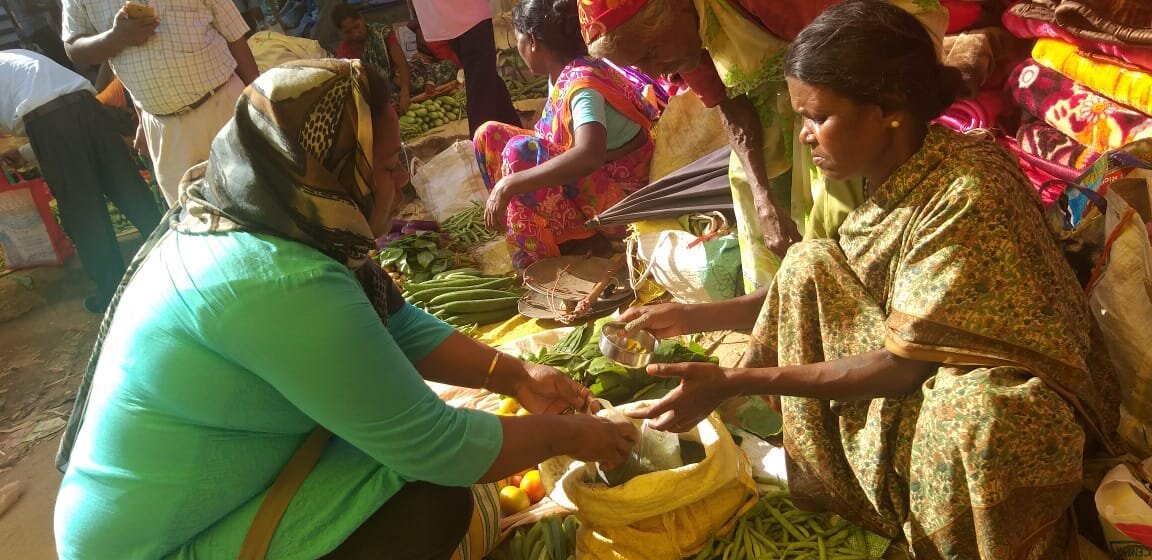
Aruna Tirkey’s Ajam Emba is a restaurant founded on a radical idea — to preserve and celebrate the indigenous foods of Jharkand’s tribal communities; one of the few restaurants in the state to do so.
For a taste of jute flower curry (sanei phool), rice tea (chaur chai), or a dish of herbs and rice starch (maad jhod), walk into Ajam Emba, located a few kilometres from the railway station on the road towards Patratu valley in Ranchi, Jharkhand. Ajam Emba remains the only restaurant serving the native cuisine of a state with a 26.3 percent indigenous population.
Conceptualised by Aruna Tirkey, a rural development officer, Ajam Emba, is a restaurant, catering service and cooking school with a vision to serve native tribal cuisine, preserving their culinary heritage, building a viable and sustainable business, both environmentally and economically.
Aruna says the idea for Ajam Emba came to her when she found the millet Ragi, a staple from her childhood, advertised and packaged at an upscale supermarket. “I noticed that it was quite expensive; out of reach for many in my community.” She knew immediately that she wanted to work towards bringing back the heirloom grains that belonged to the local culture.
Although 26.3% of the state's population is indigenous, consisting of tribal communities, they remain socially and economically marginalised. Aruna belongs to Oraon community of Jharkhand, and over the last few years, Aruna has despaired that indigenous food staples were slowly being replaced by wheat and rice.
Despite wide food diversity (close to 9,000 varieties of green leafy vegetables are known to the local tribal population), and an equally wide diversity of cuisine, the state’s indigenous food remains fairly unknown in mainstream food culture. Over the last few years, food habits and preferences have changed (due to disbanding of the joint family system, migration to urban areas, easy availability of processed food, and exposure to diverse food cultures) and has contributed to the disappearance of many culinary traditions of Jharkhand.
Previously engaged in rural development work across several Indian states, Aruna has encountered diverse regional specialities. “I realised that food from Jharkhand was totally unknown, even within our state. And ironically, dominant cuisines from other states is far more easily accessible. A Gujarati or Rajasthani thali is easy to find, but no one seems to know a Jharkhandi thali,” she explains. The food served at hotels and restaurants in the state is primarily mainstream north Indian, and popular south Indian. ‘Indian Chinese’ is common, especially at roadside eateries. Aruna couldn’t shake the feeling that traditional food from Jharkhand was disappearing. “I realised that if tribal cuisine isn’t revived and popularised in some way, it will slowly disappear. And with it, a rich food culture will be wiped out.”
She decided to launch Ajam Emba in 2018, focussing on tribal food revival and propagation. When asked about the restaurant’s name, she explains, “The restaurant is focussed on the traditional cuisine of Jharkhand. In the local dialect (Kurukh), Jharkhand cuisine is Ajam Emba meaning 'great tasting food.’ I liked the sound of that.”
Today Ajam Emba is one of the state’s most prominent woman-led initiatives. The slow-food restaurant-cum-training centre in Ranchi is entirely managed by tribal women and girls. "Our approach is to link indigenous food revival with female entrepreneurship and employment, making it a sustainable business model."
Inside the kitchen at Ajam Emba
The Ajam Emba Experience
Inside the restaurant, the first thing one notices is the décor. Painted village scenes bring colour to the interiors; bamboo elements add texture, and earthenware cups and cutlery lend a rustic feel to the dining experience.
Ajam Emba's restaurant space
The standard menu consists of ragi roti, chilka roti, red rice, a variety of pithas; country chicken and local mutton is available every day. Seasonal food with local herbs, fish and snails, vary depending on the time of year. And special dishes like rice beer, or peetha, are available on tribal festivals.
The restaurant is packed on most weekends. A meal can cost anywhere between INR 60 and 300. Diners can choose a thali, consisting of rice, crepes, sabzi, a traditional dal and local herb chutney, or order individual dishes like ragi or chilka roti, with sabzi. “The restaurant can seat only 40 people at a time,” says Aruna, and requests guests to make reservations in advance, especially on weekends. Takeaways also form a large portion of the business, and orders are taken in advance to facilitate planning and cooking.
In addition to traditional Jharkhand cuisine, Ajam Emba also serves dishes that bring together global and tribal cuisine. The madua (ragi) momo, made from finger millet flour that combines nutrition and flavour, is hugely popular with younger diners.
Using local food is of prime importance to Aruna. Traditional and chemical-free varieties of pulses like Arhar, Kurthi, Urad, madua, gondli and red rice occupies pride of place on the menu. Seasonal dishes made with Mahua and Jheerul flowers are also popular, and Aruna often shares photographs of these flowers alongside their nutritional and medicinal value on the menu board. These dishes are often sold out within hours of her posting.
Ingredients are sourced from local growers; traditional varieties are procured from millet farmers, local fishermen, and forest produce collectors. "These ingredients have extremely low carbon footprint, with low or zero input production systems, and features a wide variety of uncultivated foods," Aruna adds. The restaurant serves food in reusable earthen pots, plates and bio-degradable leaf plates. The use of plastic is negligible. Raw green sal leaves are used to pack take-away orders.
What differentiates Ajam Emba (besides its cuisine) are the personal conversations that take happen over food. Aruna’s realisation that diners from other communities and urban areas lack awareness and appreciation for the nutritional value of these foods. To address this, she created local food information boards which eventually became conversation starters. Diners who visit Ajam Emba for a taste of local cuisine, inevitably get drawn into conversations on sustainable local farming practices.
Ajam Emba aims to restore, revive and strengthen local indigenous food culture and cuisine; to protect and boost the identity of an ancient, rich indigenous culture in contemporary times, faced with the real threat of urbanisation and commercialisation. In light of these imminent dangers, instilling pride in local food and cooking traditions is a crucial step to preservation.
Nupur Roopa is a freelance writer and a life coach for mothers. She writes on education, environment, food, history, parenting, and travel.
ALSO ON THE GOYA JOURNAL
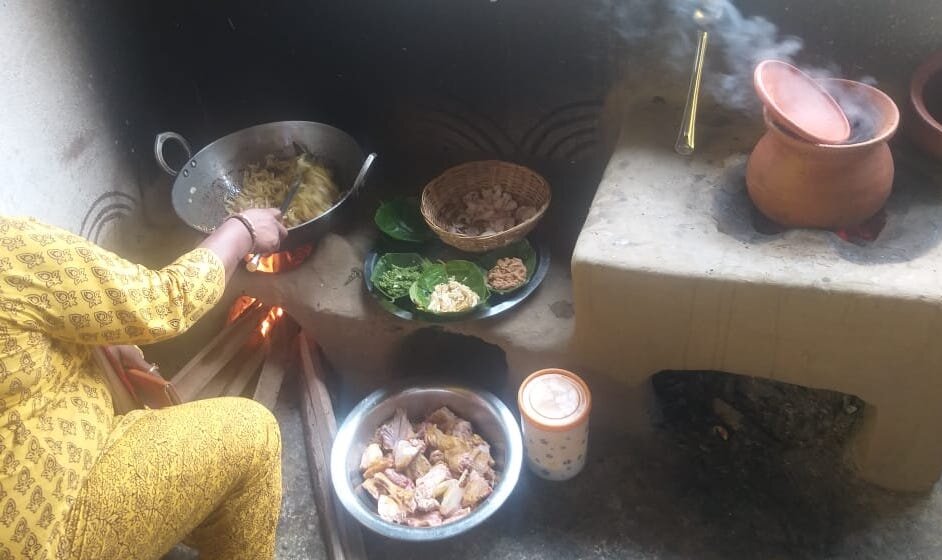




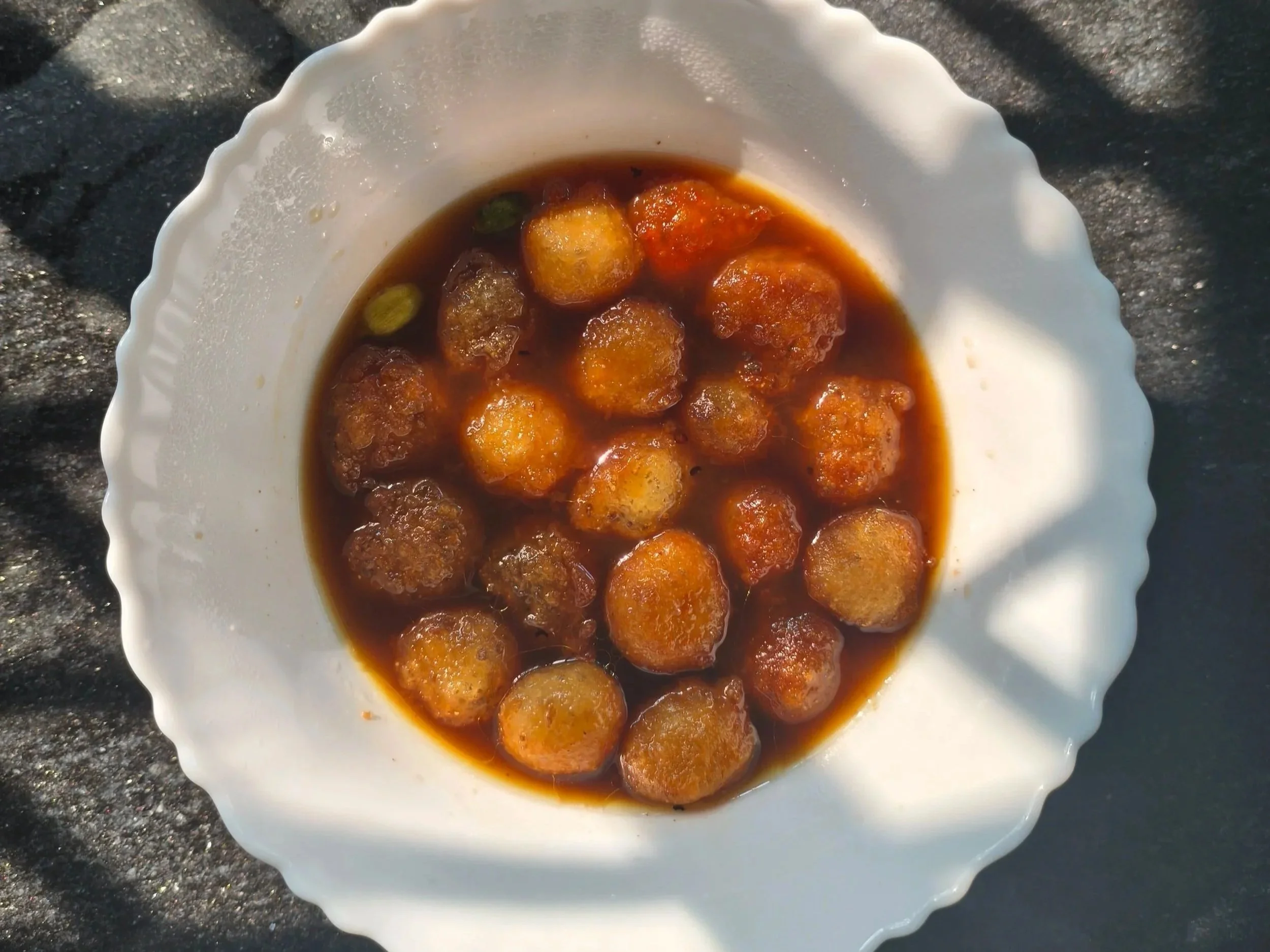




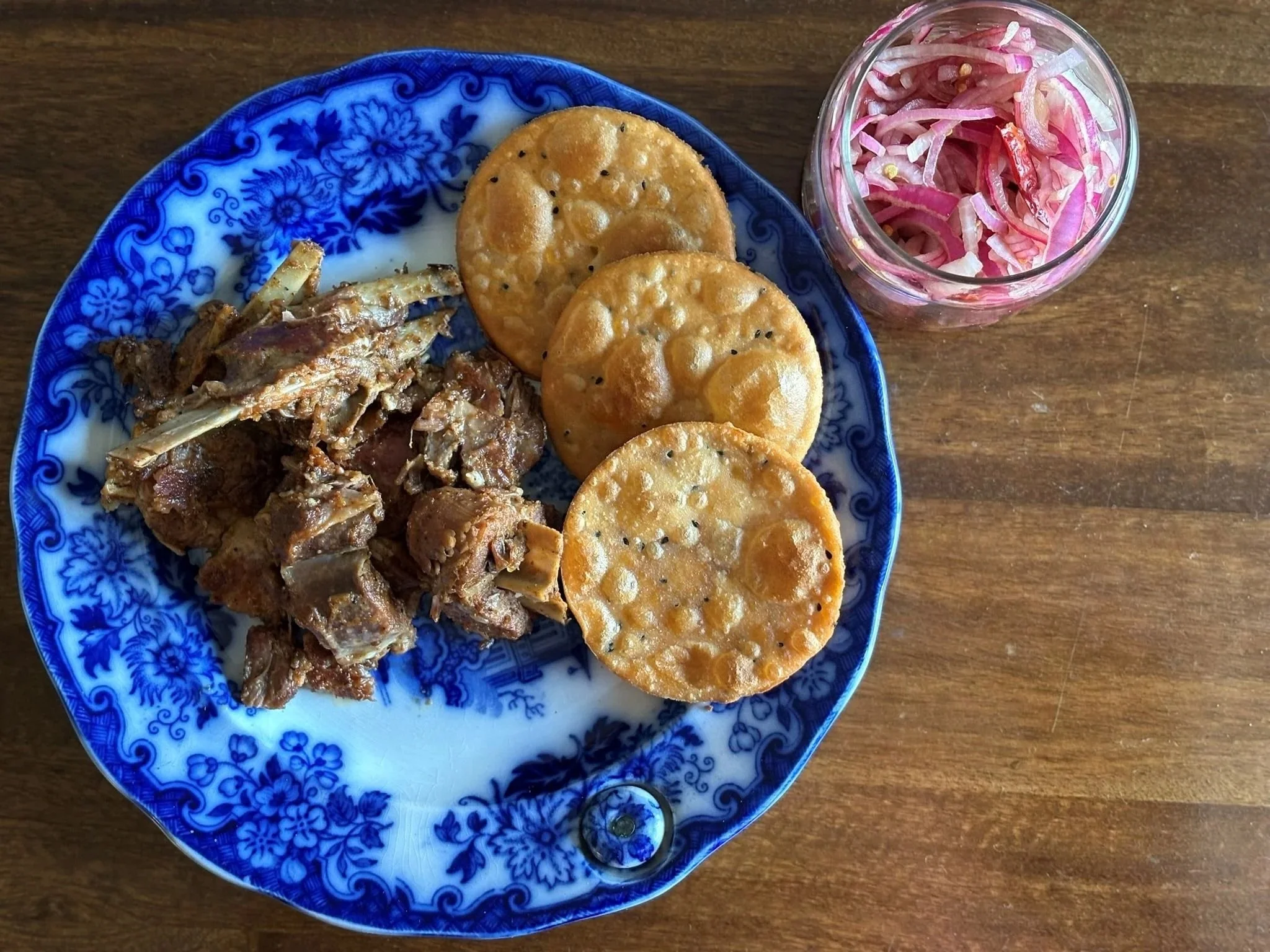
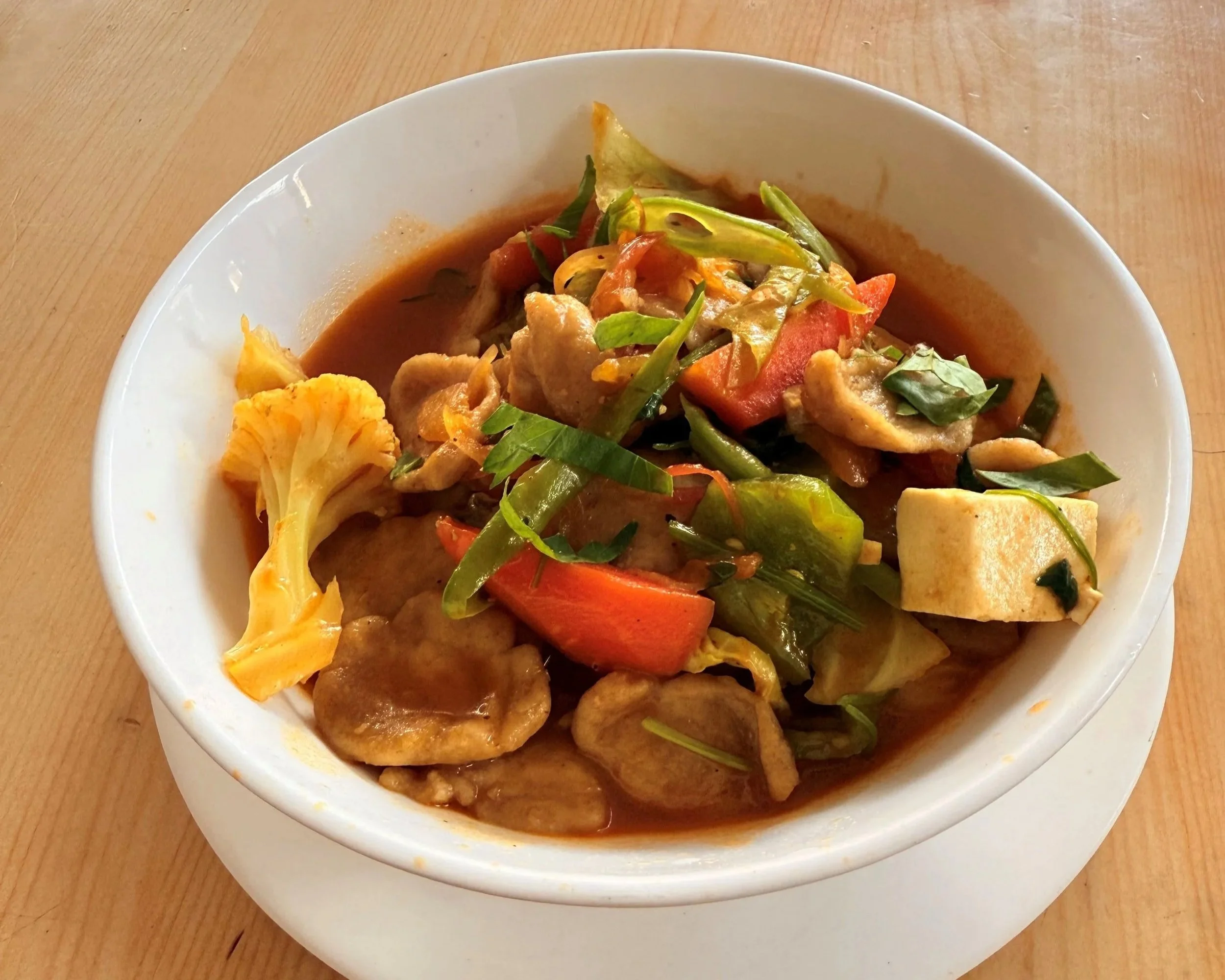
Neo-nomad cuisine of Central Asia | Terrence Manne